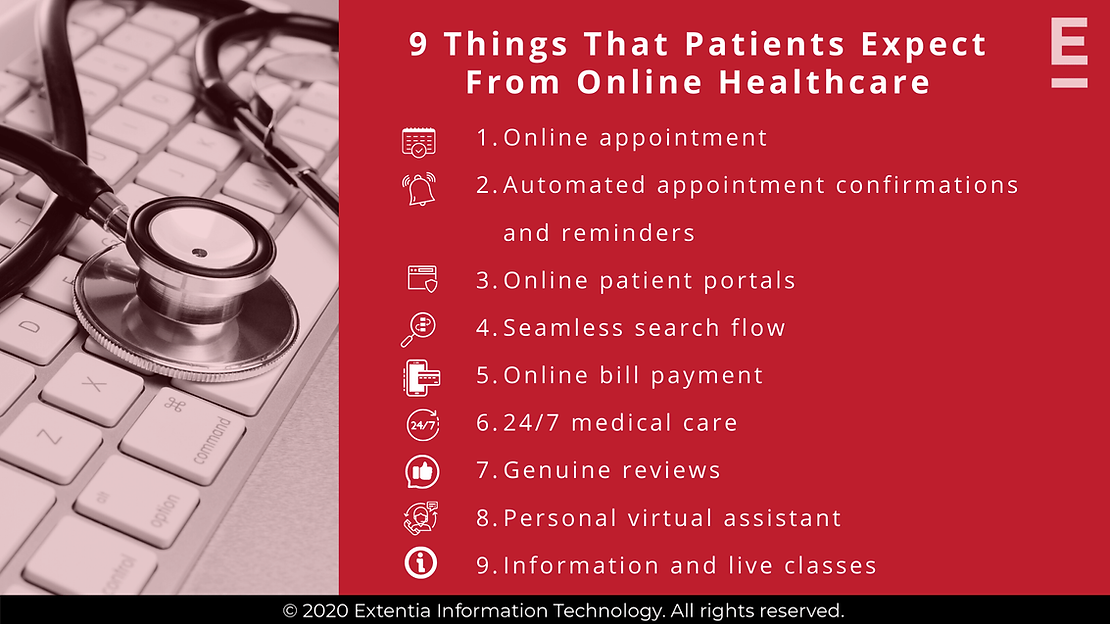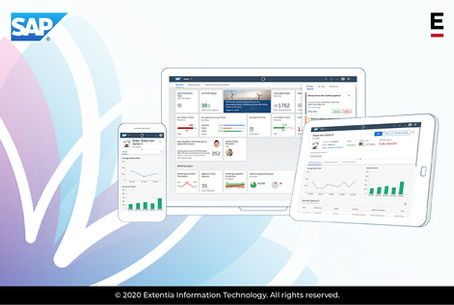The year 2020 has put the healthcare industry on the map as one of the world’s most valuable industries. Common man or researcher, technology professional or marketer, large businesses or start-ups, governments, or hospitals; all at their capacities are now aware of how healthcare is rapidly changing. It is now one of the most focused, researched, and technologically enabled industries globally – one of the reasons we thought it’s necessary to bring you updates on online healthcare. The end of 2020 indeed calls for a special call-out for online healthcare and its various achievements, transformations, disadvantages, and more. We all like stories where technology enables problem-solving and plays a pivotal role in changing the lives of many, don’t we?
The days of waiting to get an appointment or traveling to another city to visit an expert doctor seem to be over. With healthcare moving online, we can now schedule appointments, consult with doctors, and make payments seamlessly, at the ease of sitting at home. The demand for online healthcare services has increased significantly, and today, more than 70% of American consumers show a positive interest in availing telemedicine services. The COVID-19 pandemic has also expedited this shift to online healthcare as virtual consultation becomes necessary to avoid the spread of infection.
With rising demand, the expectations of patients have also evolved. Let us dwell deeper to understand what patients expect from online healthcare today:
1. Online appointment
Patients expect a hassle-free process for making appointments through apps or websites. As per Intuit Health, 81% of patients prefer to book a healthcare appointment directly online without making calls.
2. Automated appointment confirmations and reminders
Many patients miss their appointments as they forget to go or cancel the appointment. Confirmations on emails and reminders on the calendar help patients avoid missing their appointments.
3. Online patient portals
Patients seeking medical advice online, look for an accessible and easy-to-use portal. An ideal portal should encompass lab results, prescription refills, and the patient’s medical records at the click of the button.
4. Seamless search flow
Patients expect the search for doctors, tests, information, specialty, and other services on the online portal to be as seamless as shopping on e-commerce portals. Healthcare providers need to ensure that their apps and websites have robust search algorithms that give accurate real-time results.
5. Online bill payment
Paying bills via cheques and contacting insurance companies is a hassle that most want to avoid. Patients seek a simple payment process that integrates their insurance and preferred payment mode seamlessly on the online patient portal.
6. 24/7 medical care
As doctors can attend more people remotely, patients now expect medical practitioners to be reachable 24/7 for an emergency.
7. Genuine reviews
Reviews help patients understand services and establish trust. That’s precisely why patients prefer services that have a substantial number of positive reviews.
8. Personal virtual assistant
Patients sometimes need help to find the right service for them. A chatbot or a human-based concierge service can help patients reach out to support and avail of the service they require.
9. Information and live classes
Patients who seek services such as therapy remotely can be served via on-demand videos and live classes. This makes designing accessible content for patients crucial for healthcare providers.
Despite online healthcare’s increasing popularity, factors such as doctor credibility, hidden costs, and information privacy are still a matter of concern for many. Let’s assess the pros and cons of online healthcare:

Pros of Online Healthcare
Ubiquity
Digital technologies have enabled healthcare to be ubiquitously available to anyone and anywhere. Patients can reach reputed doctors, regardless of their geography, making online healthcare extremely beneficial, especially in rural areas.Access to experts, services, and information
Online healthcare is useful to prevent dangerous self-diagnosis as it directly connects patients with experts at any time.24/7 service
Patients can avail of services at any time for consultation, booking appointments, scheduling tests by merely accessing an online portal on their devices.
Cons of Online Healthcare
Privacy and data protection
If the apps and websites are not properly secured, they run the risk of attacks from hackers. Hackers may also access the patient’s records and data if they have accessed online healthcare through public networks or unencrypted channels – posing serious security threats.Delay in care
Some critical emergency services require physical delivery, as accessing consultation through online channels can delay the treatment.Limited doctor advice
In online consultations, doctors face challenges in providing suggestions without proper diagnostic reports. Therefore, they might often be constrained to give the patients general recommendations.
Evolving Patient Healthcare
Online healthcare is making healthcare accessible to millions of people around the world. The Internet, data, and artificial intelligence are fundamentally changing how people access and avail healthcare.
Medical research, combined with data technologies, now allows for better diagnosis, treatment, and patient care. Developments in Big Data and artificial intelligence are enabling a great degree of personalization and customization in services for patients as well.
We, at Extentia have been at the forefront in providing transformative solutions in the online healthcare space. In our next article, we will be exploring the online healthcare domain from doctors’ standpoint, stay tuned!




